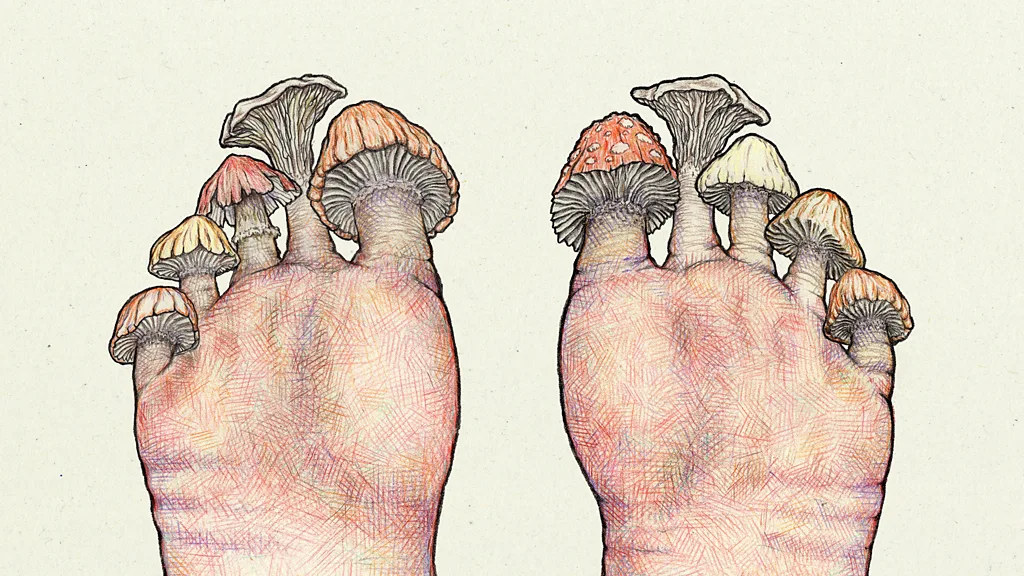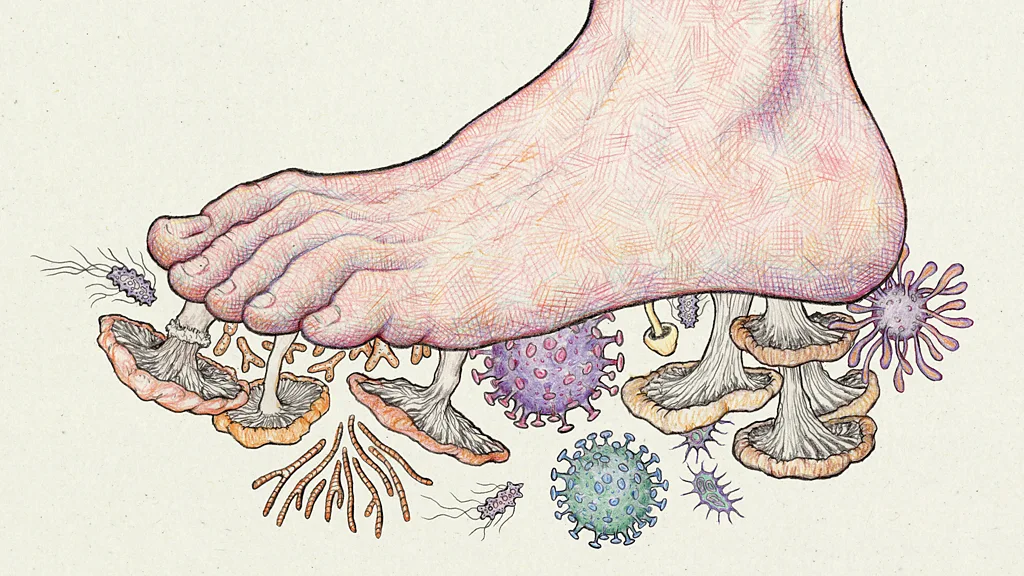Some people scrub them every day while others say letting water run over them in the shower is enough. So are you cleaning these important appendages enough?
When you jump into the shower and reach for the soap and loofah, it's fair to say that certain body parts probably receive more attention than others. The underarm region no doubt gets the full lather, rinse, repeat treatment. Your feet, by virtue of being located at the end of your body, can be easy to overlook. However, according to some experts, your feet are just as, if not more, deserving of attention.
Both the UK's National Health Service (NHS) and US Centre for Disease Control (CDC), for example, advise washing feet daily with soap and water. One reason for this meticulous care is to prevent odour. The soles of the foot contain 600 sweat glands per square centimetre of skin, more than any other region of the body. Although sweat itself doesn't smell, it contains a nutritious broth of salts, glucose, vitamins and amino acids, which serves as an all-you-can-eat buffet for bacteria that live there. And there a lot of bacteria.
"The foot – especially between the toes – is quite a moist, humid, and warm environment, so it can be a breeding ground for microbes," says Holly Wilkinson, a lecturer in wound healing at the University of Hull in the UK. This is exacerbated by the fact that most people encase their feet in socks and shoes, trapping the moisture inside.
If you zoom in on any square centimetre of human skin you will find between 10,000 to one million bacteria living there. Warm and moist areas of the skin, such as the feet, are considered prime real estate and are home to the greatest numbers of species. Feet are idyllic havens for Corynebacterium and Staphylococcus bacteria, for example. When it comes to fungi, your sweaty feet are considered a utopia to genera including Aspergillus (a pathogen often found in soil), Cryptococcus, Epicoccum, Rhodotorula, Candida (a kind of yeast which naturally lives on the body but can become an opportunistic pathogen), Trichosporon and others.
In fact, the human foot contains a greater biodiversity of fungal species than any other body region.

This is probably a good reason to clean your feet. In one study, researchers swabbed the soles of 40 volunteers. They found that foot washing had a significant impact on bacteria numbers. People who washed their feet twice a day had around 8,800 bacteria living in each square centimetre of skin. Those who reported washing every other day had over one million bacteria per square centimetre.
However just because the soles of your feet are brimming with microbial life,
that doesn't mean that they are necessarily smelly or that there is anything to worry about. As always, it's not just the number, but the type of bacteria that's important..

The human foot contains a greater biodiversity of fungal species than any other body region
While skin infections can still occur if you have good foot hygiene, regularly washing your feet reduces the number of bacteria present. So, if you happen to get a cut, there will be less microbes around to get into the bloodstream.
Frequent foot washing is especially important if you suffer from diabetes,
a condition that makes people prone to ulcers and skin infections. Research has shown the feet of diabetic patients contains a higher proportion of pathogenic bacteria residing on the skin.

“A lot of people think that if you have a shower and you kind of just let the water trickle, that that's washing feet, but it isn't” – Holly Wilkinson
But what about everyone else? Some experts argue that for most people, washing the feet every day has little health benefit, and can even raise the risk of skin problems.
After all, the skin relies on its community of helpful microbes to perform essential functions. They repel harmful bacteria, produce lipids that keep the skin hydrated and supple, and even help repair wounds. Intensive washing and scrubbing can remove these beneficial species, especially if the water is hot. As a result, skin can become dry, irritated, or itchy. Cracked skin may allow bacteria to breach the usually impenetrable skin barrier, increasing the likelihood of infections.
"Overwashing the skin can disrupt the skin barrier, stripping the skin of natural oils, contributing to dryness and inflammation," says Zeichner. This leads to itchy, dry skin and can exacerbate conditions like eczema.
"It is also important not to overly scrub or exfoliate the skin on the feet," says Zeichner.
"Calluses develop because of daily trauma. But they actually protect the feet from the environment. Removing calluses takes away that protection."
There is also a concern that antibacterial soaps could upset the delicate balance of microorganisms on the skin, killing the beneficial species and allowing the emergence of hardier, pathogenic strains that are resistant to antibiotics. Finally, our immune system needs to be challenged to a certain extent by microbes in order to do its job. If we don't come into contact with a steady stream of bacteria and viruses in childhood, then our bodies don't learn how to properly respond to attack. Some experts believe that bathing or showering too frequently could actually be counterproductive for you for this very reason.